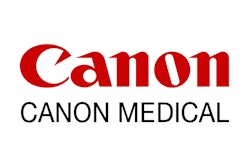
We are living in unprecedented times. With the COVID-19 pandemic, your sales and marketing plans for 2020 just went out the window. All of the sudden, no handshakes. No conferences or gatherings of more than 10 people. Six feet of space between everybody.
No travel. No entry to offices, centers, or hospitals. Broken clinical trials and canceled elective tests and procedures. No doubt, there are still questions to be answered, such as "When will all of this be over?" and "When will we go back to normal?"
In a recent survey, university researchers said they think it will be seven months before they are back up and running. The real answer is that recovery will take longer than it should and longer than you would expect.
Once you acknowledge you cannot control the amount of time it will take to recover, you can move on to a new strategic plan. How are you going to spread the word about your life-changing diagnostic equipment without spreading the coronavirus?
Welcome to sales and marketing in a COVID and post-COVID world.
Your team is still the foundation of your engagement strategy
First things first -- tend to your team. By now your team has learned how to work remotely and has a few new tools at their fingertips, such as Zoom, Google Hangouts, Skype, or WebEx. In person has moved online by necessity, but your team may not necessarily know how to use these tools properly. Conduct training with your team on proper etiquette to request an online meeting, how long to schedule the meeting for, and how to act during the meeting. We'll take these step by step.
 Science and Medicine Group CEO Craig Overpeck.
Science and Medicine Group CEO Craig Overpeck.The proper request. In a COVID world, the hard-charging sales professional will be ignored or shunned. In the movie "Glengarry Glen Ross," Alec Baldwin gives an inspiring and threatening sales speech about Always Be Closing, or ABC. This movie should have been required training for any pre-COVID salesperson.
Today, the team needs to change to Always Be Helping. Do not start introductions with a pitch or a product or even qualifying the client. The client is a human being living through unprecedented times. Stress and anxiety are more rampant than the coronavirus.
Start with a simple question: "How are you feeling?" If there is any upside to the social distancing, it is that humans are connecting in more empathetic ways. I worked in a publicly traded Japanese company for 10 years, and I learned that the Art of the Sale in that culture is more about the Art of the Relationship. A general "Hey, you want to meet?" approach is dead and needs to be replaced with an "If you feel well enough, I would like to hear where you need help."
Scheduling the meeting. Once a client has established they are well enough to meet and have needs, set a 20-minute meeting and make sure the URL to the meeting as well as a dial-in number are in the notes parts of the meeting calendar invite. Copy and paste those details into a separate email that confirms the meeting since not everyone is using an online calendar like you.
Video meetings tend to go much faster once everyone has arrived because nobody wants to be on camera for an hour unless you are Dr. Sanjay Gupta. Keeping the meeting to 20 minutes gives you the flexibility to end the meeting on time or extend by 10 minutes if you really need it.
A best practice is to send an agenda, and as long as it begins with "How are you feeling?" and "What are your needs?" then you are fine putting in some of what you want to discuss. Do try and match needs with your product offerings.
How to act during the meeting. Be early. Chances are you will need to update your software for a video call, especially if you are running late (Murphy's Law). Do not assume the participant will be on video -- they may dial in. Do not assume the participant will know how to use the software you selected. It can be frustrating for participants to learn your software on demand, and with the advent of Zoom passwords, any meeting set before April 4 will now need to be reissued.
Be patient and calm. Offer to help. Tell them it is OK. The good news is behavior on a video call usually goes as well as in an in-person meeting. Seeing yourself on camera generally promotes Hawthorne- or observer-effect behavior. The Hawthorne effect is a type of reactivity in which individuals modify an aspect of their behavior in response to their awareness of being observed.
If there are other people in your house or apartment where you are working, just announce at the beginning of your call that you'll be online to avoid embarrassment should they come into the camera frame or make noise. If you can use a virtual background, use one that is tasteful. Do not use a background from "Tiger King."
Recession doesn't mean a retreat from marketing
Erik Clausen, a managing partner at CG Life, recently posted an article that reminds us that recession doesn't mean a retreat from marketing. As Henry Ford once said, "A man who stops advertising to save money is like a man who stops a clock to save time."
Marketing is an easy department to hit with budget cuts, but going light on messaging when dark days hit can cause long-term damage to the brand and allow smaller or weaker competitors to steal market share. Erik points out the countless studies going back more than a decade, showing that brands maintaining or increasing advertising during a recession gain market share over time. During times of crisis, people want to hear from leaders and be assured we are all in this together, even during the darkest hours.
Just as good are messages offering to help. This past month, the most opened and clicked email to the hundreds of thousands of members of AuntMinnie.com was a post from Siemens Healthineers CEO Bernd Montag.
Closely behind were messages from Canon Medical Systems USA focused on helping customers, one through consistent service and another on decontaminating equipment.
With that said, the strategy and subsequent budget for field force tactics such as dinner meetings, events, or conferences are out for 2020. You can remain optimistic that fall 2020 will be better than spring 2020, but do not count on it.
Book your booth, but do not book travel until the last minute to make sure your budget is spent on effective tactics. Canceled or postponed conferences are not effective and result in lost productivity to book travel and then cancel travel.
Seek out online or virtual conference opportunities so you can still generate large numbers of leads for your team to pursue. Large conferences that have a lot of content are considering virtual events as a backup for fall 2020.

One opportunity available immediately is the AuntMinnie.com 2020 Virtual Conference, scheduled for April 30 and May 1 with six key opinion leader speakers and exhibitor webinars that have already attracted thousands of registrants. It may actually be the largest gathering of radiology professionals in the world this spring.
Other forms of nonpersonal promotion (NPP) such as email and print are on the rise, according to an online poll by MM&M. Medical device and pharma companies indicated 43.5% were hiking NPP, versus 26.5% reducing it.
Digital engagements are more flexible than print and often result in direct measurable return on investment (ROI). Consider using a regular cadence of messaging to be effective at overcoming the noise, and prioritize tactics that will generate leads such as webinars and emails.
Also, look for sources that your clients trust. According to Kantar Media's Radiology Media Measurement Study, AuntMinnie.com scored the highest among daily publications that radiologists trust to keep them informed on the latest practices and procedures. It also comes out on top for radiology social media. Other top scores for nonjournal sources include ACR Bulletin, Applied Radiology, and RSNA News.
Necessity is the mother of invention
Given the new challenges with in-person promotion, you still need to figure out a way to talk with the right people at the right time about the right product to ultimately secure an order. Leads through marketing will keep the sales team busy, but sales intelligence, where you know the timing of a purchase, the budget, the vendors they are considering, and the people considering it, will give your team the advantage to be focused on places expressing needs.
Data streams from IMV Medical Information Division's Imaging Masterfile, PET Census, and Radiation Therapy Census are constantly updated by centers and hospitals using an online interface to indicate their installed base and rate systems and project future needs by site. Hundreds of purchases were made in 2019, and more than 60% of them were listed in the Planned Purchases part of the data stream, which is issued quarterly.
For less than the cost of one salesperson, ALL salespeople in your company can receive better intelligence, and your sales operations team can use the installed base information of competitors to discover key accounts that need extra attention. New entrants now have the same advantage as longstanding incumbents when it comes to understanding the market -- and, more importantly, understanding where the market is going in 2020-2022 on a site-by-site basis.
Finally, I hate to say it, but it may take a pandemic and recession for brands to really discover who they are at the core. Most of our clients are manufacturers of life-changing products that healthcare professionals on the front lines rely on day in and day out. These brands are extensions of healthcare workers.
In our IMV ServiceTrak surveys, customers always tell us reliability is a key driver of intent to repurchase from that company. Customers with high reliability or high service scores enjoy a high rate of customers returning to purchase additional or next-generation equipment. These service relationships -- especially during a time of crisis -- are legendary and can make or break a generation's opinion of a brand.
The coronavirus crisis is a 9/11 event for healthcare professionals, and your service technicians will either be there as an extension of your brand to join the fight or they will be remembered for how they showed up late or did not perform well. Trust that they did a good job, but verify it directly with the client by engaging a third-party firm to call imvinfo.com/service and ask a few simple questions about their satisfaction with the service event. A question almost as powerful as "How are you feeling" is "How else can we help you?"
Talking with our radiology members, associations, and manufacturing clients, I have discovered our brands (AuntMinnie.com and IMV) are some of the most valued digital connectors in the world for radiology, bar none. Since the crisis started in January, our team of editors has been mission-driven to aggregate and distribute information about radiology's impact on COVID-19 detection. We also onboarded the CDC and WHO to our IMV Knowledge Center where we keep all our industry reports for subscribers.
This week, we are launching a global hospital tracking study to understand the impact COVID-19 is having on radiology including procedure volumes by modality by site. IMV subscribers will automatically get a copy of the report throughout the duration of the crisis.
We will also report the high-level findings to the public, including medical associations so they can advocate for their members' fair share of funding from the CARES Act to get hospitals back on their feet. Please let me know if you are interested in the report or a subscription to all our reports.
Stay safe. Be well. Be thankful.
Craig Overpeck is the CEO of Science and Medicine Group, which includes the world's largest radiology sites, AuntMinnie.com, AuntMinnieEurope.com, and AuntMinnieCME.com, and IMVInfo.com, which produces the radiology industry's reports, data, and ServiceTrak™. Mr. Overpeck was influenced at a young age by his Easton Hospital-trained x-ray technologist mother, who later went on to image patients with MRI and lead women's health centers. He can be reached at [email protected].



















